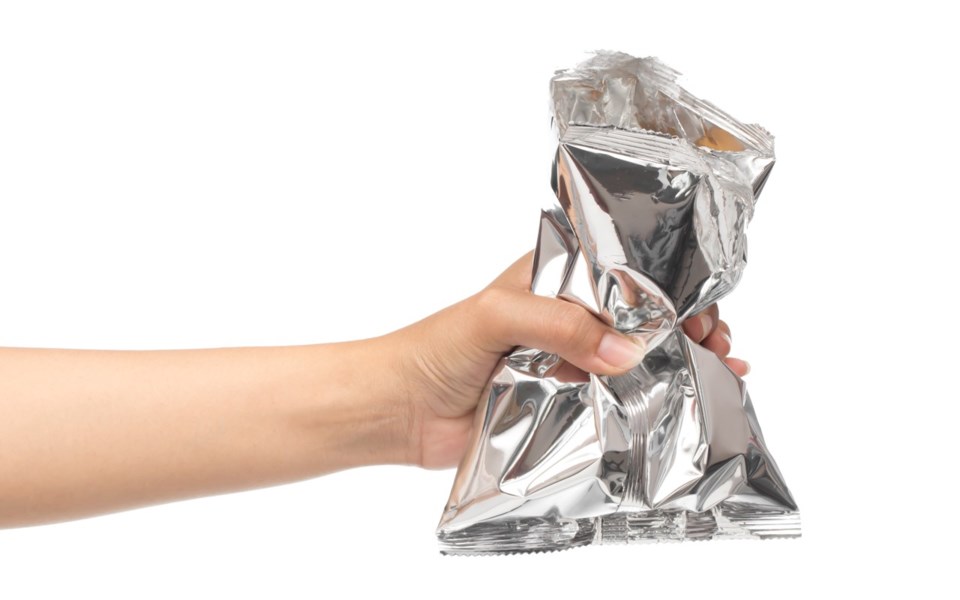A new recycling initiative may reduce the pang of guilt Whistlerites feel when putting empty bags of chips or the mesh bags used to bundle up their avocados in the garbage.
Recycle BC, an industry-funded organization responsible for recycling residential packaging, recently announced that it is phasing in the collection of a group of plastic products known as Other Flexible Packaging.
Up until now, this packaging, which includes Ziploc bags and packaging for pre-packaged deli-meats and cheese, ended up in landfills—along with a lot of other stuff.
According to the province, in 2016 alone, British Columbians produced 2.3 million tons of solid waste.
That's approximately 472 kilograms per person.
While there has been an overall decreasing trend in municipal solid waste disposal rates since the 1990s, the province still has a long way to go.
Other Flexible Packaging is an increasingly popular form of packaging for industry, and according to Recycle BC it is the single largest category of plastic that has traditionally been sent to landfill.
Over 100 recycle depots, including Whistler's Nesters and Function Junction waste depots, are taking part in the pilot project.
By the end of 2018, all Recycle BC depots are expected to collect it, according to the organization.
Just because Recycle BC is now handling it doesn't mean your Other Flexible Packaging will be recycled, however.
Speaking to Pique, Allen Langdon, managing director of Recycle BC, explained that portions of the collected plastics will be used for "research and development" or processed into fuel for things like cement kilns.
"The smallest portion, at least in the initial days, will be the portion that's recycled," said Langdon. Over time, "more and more" of the material collected will be recycled.
Whistler Mayor Nancy Wilhelm-Morden said she is thrilled that the municipality is taking part in the pilot project. "It's a very good move from Recycle BC, and we're really happy to be part of it."
Wilhelm-Morden said it fits in well with the municipality's larger goals of reducing solid waste.
In the last year, the RMOW has passed several amendments to its solid waste policy, including instituting a requirement for strata buildings and restaurants to separate organic materials from trash.
To that end, this month the RMOW is offering several waste separation and recycling workshops aimed at commercial businesses and strata residents, noted Wilhelm-Morden.
Langdon explained that recycling Other Flexible Packaging is one part of the larger puzzle, and the overall goal is to "be able to recycle all forms of packaging."
"I think this is the latest step in the continued journey to make sure everything that is put on the marketplace can eventually be collected and recycled," he said.
A number of major companies have put in place commitments to move to all recyclable, reusable or compostable forms by 2025, Langdon added.
"I think it's reasonable to think that by 2025 we might be able to recycle everything," he said.
Residents are reminded to rinse food residue from packaging before disposing it at the depots. Other Flexible Plastic Bins (complete with placards explaining exactly what qualifies) are now located at both of Whistler's waste depots.
To learn more about recycling Other Flexible Plastic Packaging, visit: RecycleBC.ca/FlexiblePackaging.




